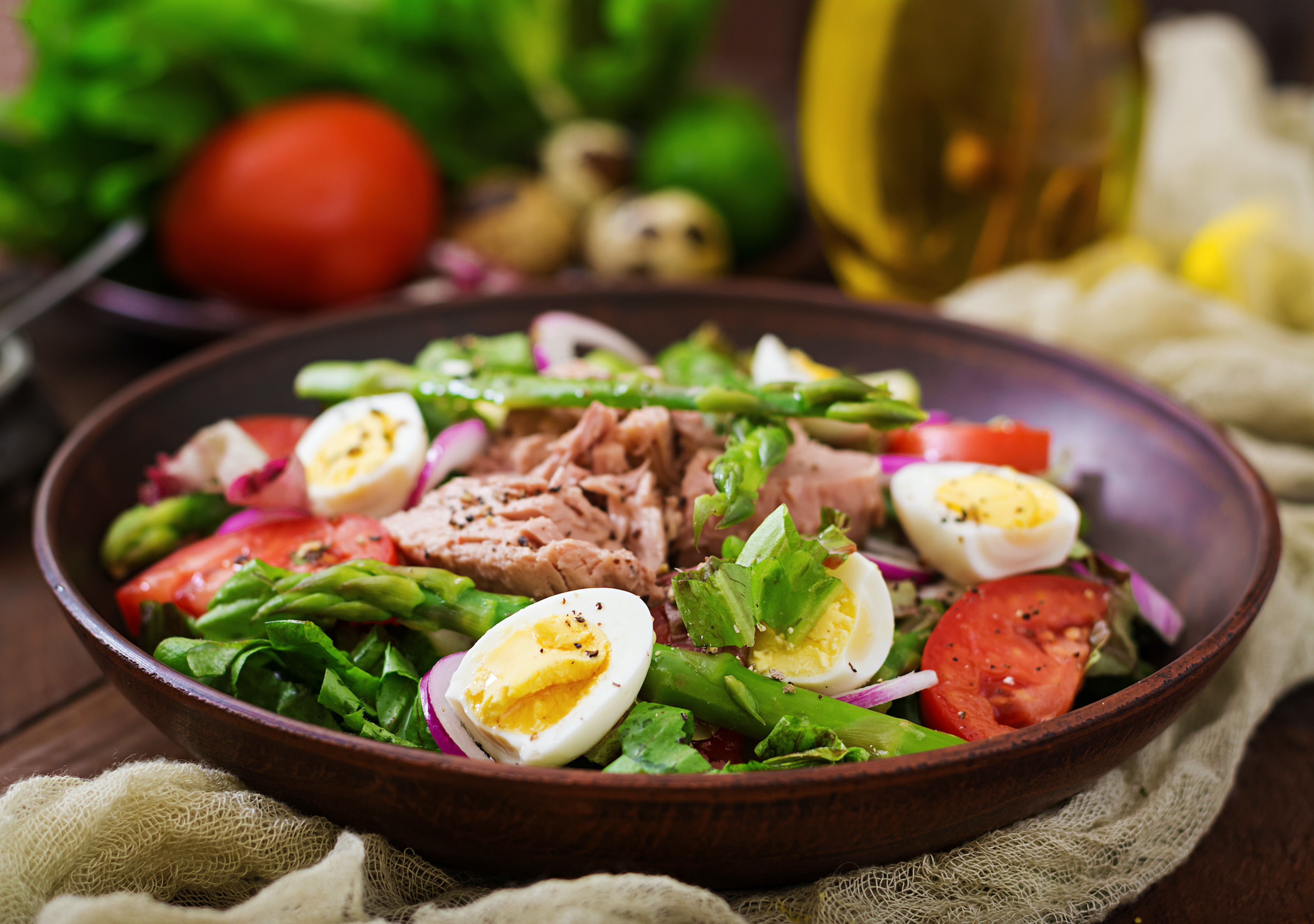Hey, Superwoman, have you lost your mojo? Do you get into a ‘mood’ like the flip of a switch? Is insomnia your new best friend, and weight gain is your enemy?
Menopause can be a time of hormonal upheaval, which brings physical, emotional and psychological changes. For many women, the accompanying perimenopause and menopause symptoms can creep up on them over the years. Yep, that was definitely me.
Current research shows that many women enter midlife and menopause nutritionally deficient. You may think you have a healthy diet, but did you know that stress causes havoc with your hormones and body? Sustained stress puts your body in survival mode. It slows down many crucial functions such as digestion, impeding your body’s ability to absorb nutrients from food. Throw into the mix of declining oestrogen levels and slowing metabolism and suddenly you feel like you are falling apart.
Here are some changes that you can make to your diet and lifestyle to help you feel like Superwoman again.
Start your day by waking up your metabolism
Wake up your metabolism with a warm glass of lemon water first thing in the morning. Add a slice of ginger for an extra burst of flavour and anti-inflammatory boost. It helps your body eliminate waste products while aiding the body’s digestive system. It detoxes the body, rejuvenates your skin, boosts your mood, cleanses your liver and helps releive heart burn.

Don’t skip breakfast
Breakfast is the most important meal of the day as it kick-starts your metabolism, helping you burn calories throughout the day. It provides you with the energy you need to get things done and enables you to focus and makes it less likely that you will overeat later in the day. Breakfast replenishes the stores of energy and nutrients in your body.
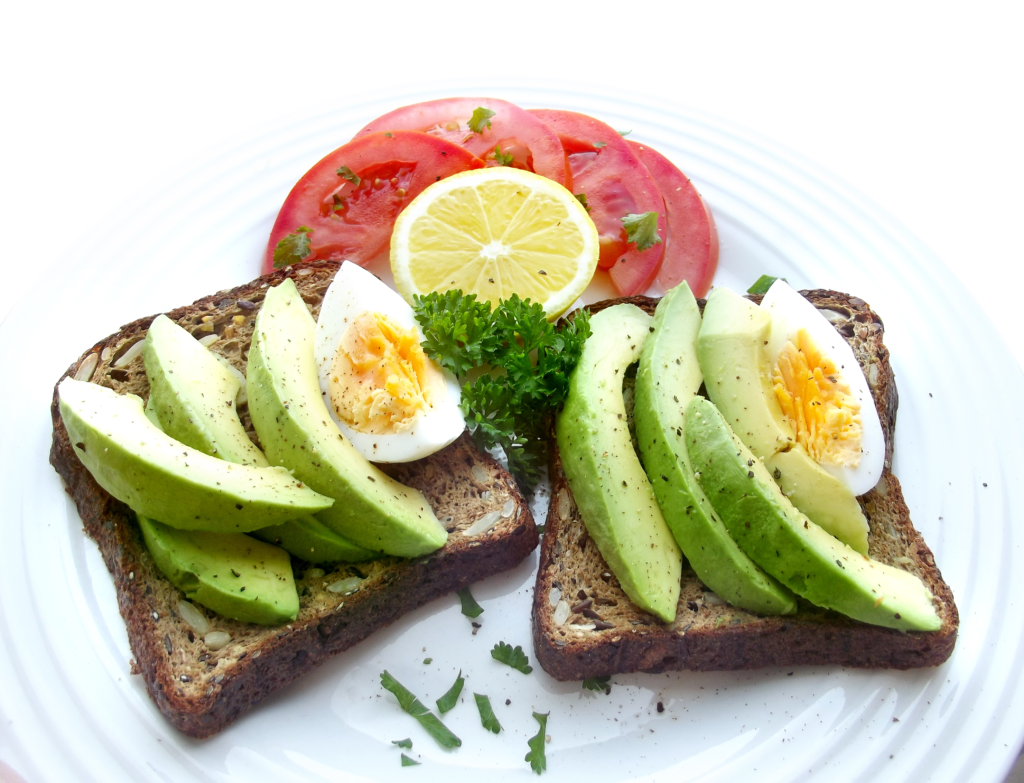
Eat protein with every meal
Eating protein with each meal helps balance blood sugar levels and keep you feeling full and satisfied. Good protein sources include chicken, seafood, eggs, dairy, Greek yoghurt, tofu, quinoa, beans, nuts, seeds, oats, and avocado.
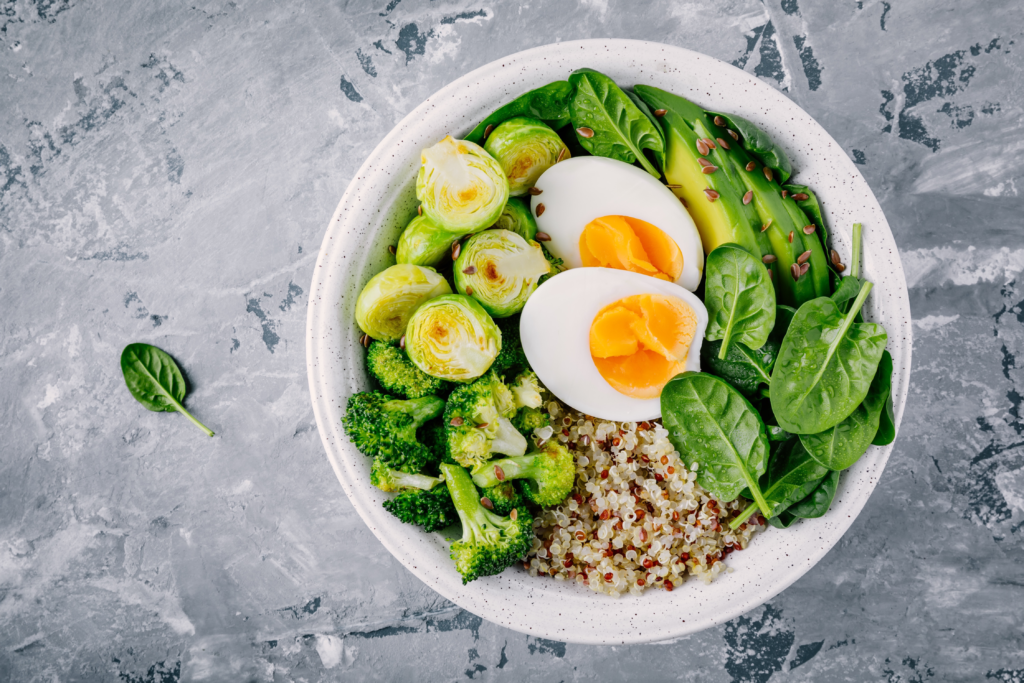
Be mindful of caffeine intake
Caffeine is a stimulant found in coffee, tea and fizzy drinks. It has been shown to exacerbate menopause symptoms: hot flushes, night sweats, headaches, anxiety, heart palpitations and insomnia. Try some caffeine-free herbal teas, Rooibos tea or water infusions such as mint and cucumber which are delicious.

Add phytoestrogen rich foods to your diet
Phytoestrogens are plant-based foods that mimic the effects of oestrogen in the human body. Good sources of phytoestrogens to incorporate into your daily diet are tofu, tempeh, soy yoghurt, edamame beans, miso soup, miso paste, soya beans, flax seeds, sesame seeds, sunflower seeds, chickpeas, lentils and adzuki beans.
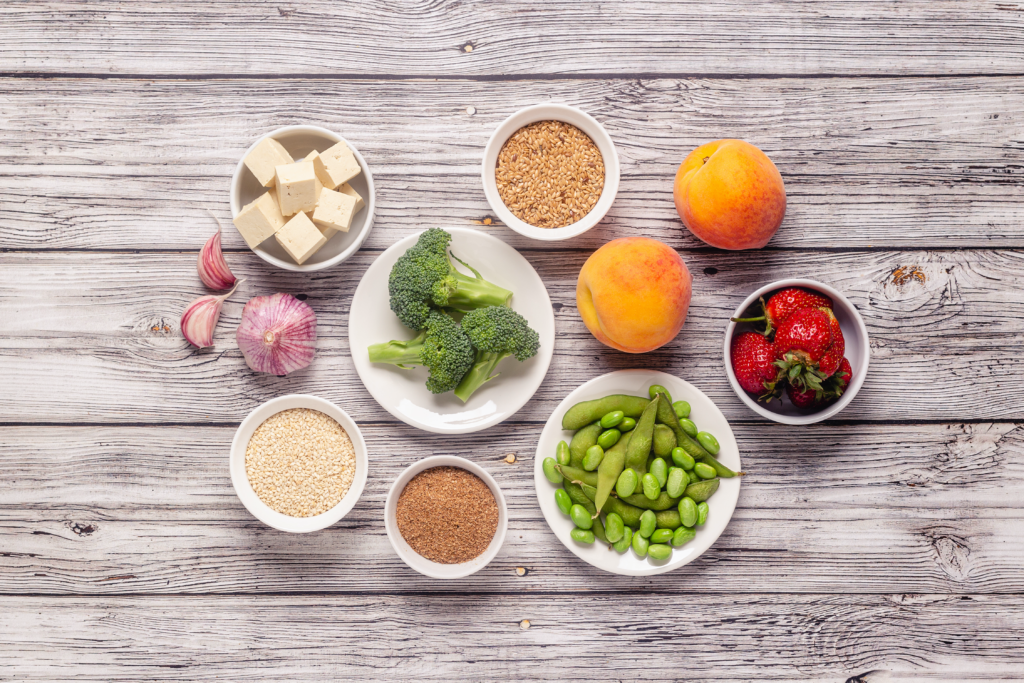
Eat a nutrient dense diet
A nutrient-dense diet contains foods that comprise vitamins, minerals, complex carbohydrates, lean protein and healthy fats. Examples of nutrient-dense foods include vegetables, fruits, whole grains, seafood, lean meats, eggs, peas, beans, nuts and seeds—real wholesome foods and not processed ready-made meals.

Boost your diet with healthy fats
Healthy fats are essential to your diet – they provide energy, protect organs, help absorb vitamins, make you feel full so you don’t overeat, speed up your metabolism and help regulate blood glucose levels. They are found in whole or unprocessed plant foods like avocados, coconuts, nuts, nut butter, nut oils, seeds, poultry and fish.
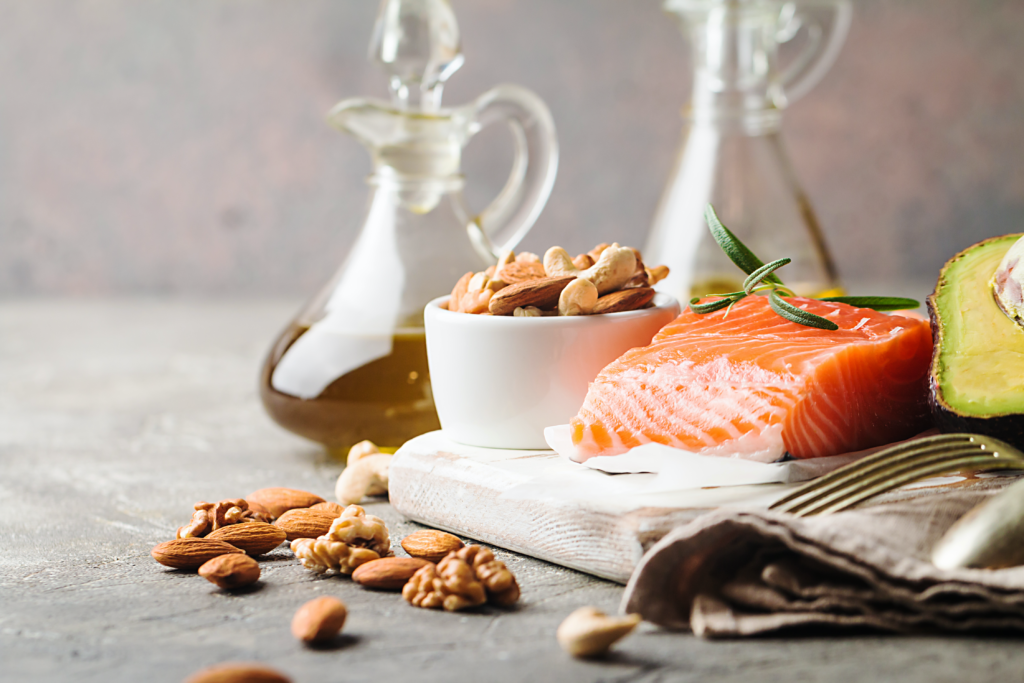
Go easy on the alcohol
Too much alcohol can trigger hot flushes, night sweats, induce poor sleep and affect your mood. Drinking lots of alcohol can also strip you of nutrients such as calcium, magnesium and B vitamins, all of which are needed in menopause. Try to drink in moderation, don’t binge. Try a glass of fizzy water after a glass of wine, this also helps to keep you hydrated.

Eat healthy snacks
A midlife and menopause diet is not about deprivation. It’s about nourishment with the right foods. So when you get the munchies have some healthy, wholesome snack foods available such as nuts, seeds and dried fruits, raw vegetables and hummus or hard boiled eggs.
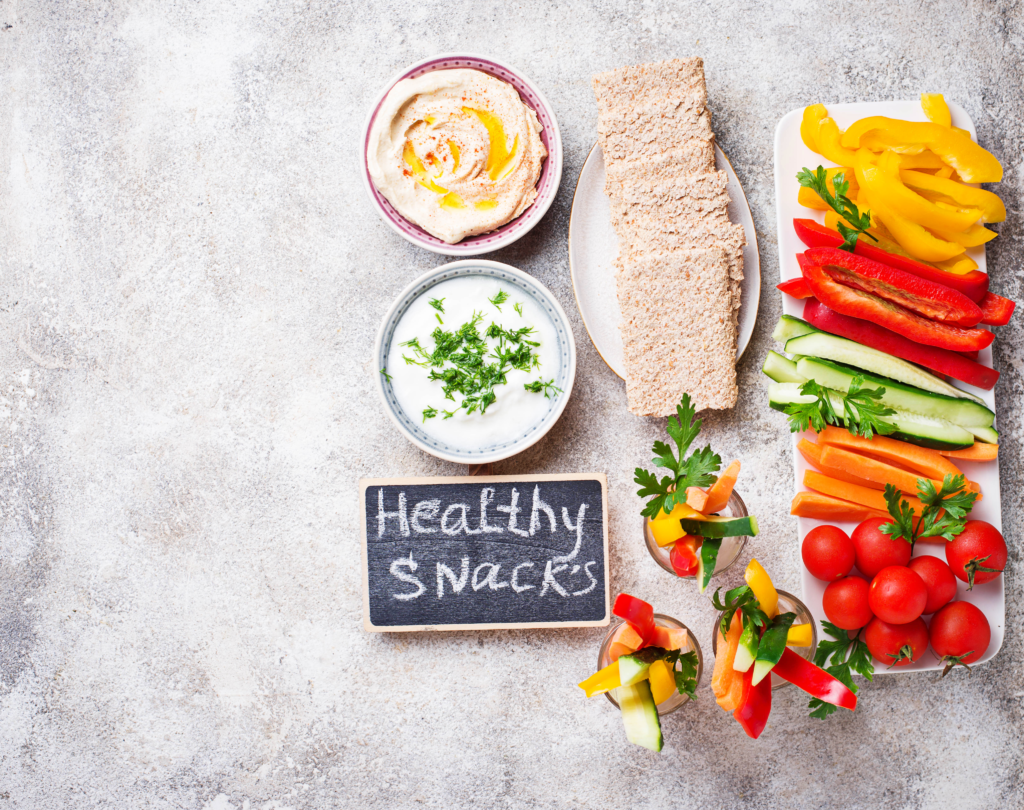
Ditch processed foods
Take stock of your current diet and be brutally honest with yourself. Are you eating fresh, wholesome foods or is most of them ready-made? Many processed foods are laden with salt, sugar and lacking in nutrients they may taste good, but don’t be fooled: your body deserves proper nutrition.
As your bodies change during the midlife menopausal years, proper nutrition becomes critical in managing symptoms and maintaining good bone, heart, brain and gut health. With the help of the right nutrition, foods can help boost mood, energy and improve sleep and many other symptoms.
These tips are a great starting point for preparing you to take on the hormonal upheaval that Menopause and midlife brings.

